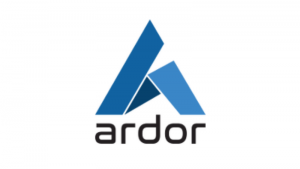
These smart contracts use a two-step deployment process. The first step minimises the data stored directly in smart contracts. The second ensures maximal data security.
Jelurida platforms
Jelurida offers two blockchain playforms:
Nxt is an open source application platform which expands what enterprises can accomplish on a blockchain. It is a proof-of-stake blockchain which has run since 2013 as a public blockchain open to all. For those for whom a public blockchain is not an option, Jelurida:
- sells licenses for private versions of the Nxt software
- creates bespoke versions for enterprises (a private blockchain evaluation package is available for testing and rapid application prototyping).
Ardor is an evolution of the Nxt software. Like Nxt, Ardor runs as public open source software, and is also available for commercial licensing. It launched in early 2018 with the objectives of addressing blockchain issues like bloat, scaleability and versatility. Jelurida designed Ardor to be an ecosystem where multiple players interact with each other without needing to go outside the platform.
Ardor solves the problem of having to store and process large amounts of non-essential long term data in the blockchain. It does this by separating the tokens providing blockchain security from those used for regular transactions. (A detailed technical overview of the logic and motivation behind the Ardor design is available here.)
Ignis lightweight contracts
Ignis lightweight contracts process input data from a trigger transaction. The result records on the blockchain as an output transaction.
This design, intended to be intuitive, means that deploying a new version of the code and updating future trigger transactions is enough to upgrade a smart contract. This also makes it easier to develop oracles which interface between external data sources and the Ardor blockchain – because Ignis lightweight contracts automate specific processes without storing state information (for example, token balances) internally.
Lightweight contract templates and decentralized applications (dApps) have the potential to be sold or distributed open source through the existing Ignis marketplace. In this context, fair play in contracts is ensured by a security framework which makes it easy to deploy verification and approval nodes to replicate contract calculations and outputs of the executing account.
Additionally, Jelurida’s ‘hashed secret’ means funds are never permanently locked in an Ignis lightweight contract when a contract fails to trigger. The Jelurida intention is that this combination provides confidence for financial and data security when using the Ardor platform’s public distributed ledger.
Real world utility and asset properties
Jelurida has further expanded the Ardor platform’s functionality by activating ‘Asset Properties’ and the ‘Max Property Group’ (MPG) child chain. While Ignis offered the ability to tokenise assets from its inception, Asset Properties makes it easier to manage full supply chains on the blockchain by linking asset relationships and asset states. Jelurida provides example guidance for tokenising an agricultural supply chain.
The Max Property Group (MPG) child chain represents the Ardor platform’s most distinct real world use case since the launch of Ardorgate’s AEUR euro-pegged token. Those users who complete the necessary KYC/AML account verification processes (with the Max Property Group) will become some of the first to have access to on-chain real estate and investments.
Enterprise Times: what does this mean
Ignis lightweight contracts, which activated on January 9, 2019), are stateless. Jelurida believes they:
- are flexible and secure
- represent a new generation of smart contracts (designed to facilitate the use of blockchain technology for users, developers, cryptocurrency projects and businesses).
Jelurida interests Enterprise Times because it is exploring different open source licensing models and their enforceability in practice. Balancing this is the Enterprise Times ‘uncertainty‘ about tokenisation in general, which may shape how enterprises view lightweight contracts.

























